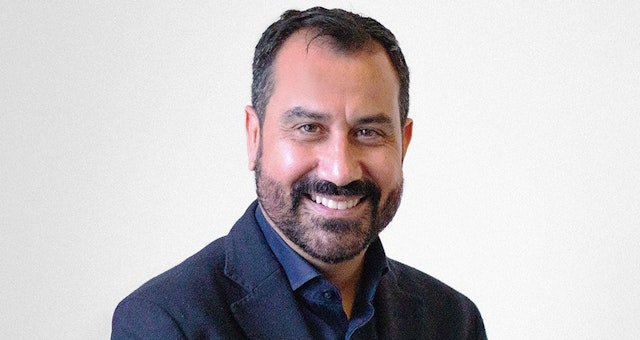Indie agency leaders explain how to help brands avoid sustainability fatigue
Messaging fatigue and market saturation have made it harder for brands to succeed with sustainable products. Here’s how agency partners are helping.

After Nestle and Oatly pulled back on some sustainable segments, how can brands better communicate green credentials? / Unsplash
If businesses and brands are to transition to a more sustainable, responsible way of generating turnover, they need to persuade consumers that their eco-minded product lines are worth changing habits for. But impacted by consumer caution and market saturation, big brands such as Oatly and Nestle have sunsetted some of their forays into sustainable sales.
Is sustainable FMCG marketing running out of gas? We asked 13 indie agency leaders how they’d find a way of cutting through.
How do you solve a problem like... marketing sustainable products to bored consumers?
Ed Henderson, planning director, Ardmore: “There is a danger when it comes to effectively marketing products with sustainable credentials. Specifically, core product USPs like taste, value and even style, can become demoted and sometimes even lost to the purpose-driven hot topic that sits on top of every CMO’s agenda right now. It goes without saying, we all care about a sustainable future, but in the battle for attention on the supermarket isles, the most important thing, is the sales-focused task at hand. People want great ingredients, great taste and great value. Marketing strategy is about sacrifice, and that includes deciding on the single most important selling point of a product and communicating it. If marketing is about communicating what people truly want, let’s listen and give it to them.”
Advertisement
Fiona Couper, CMO, VCCP Business: “Not all segments are equal. The challenge for sustainable brands and products is to focus on the opportunity segments. Some consumer segments just aren’t worth talking to about sustainability and ESG issues, and some have a significantly higher potential to change their own behavior and influence others. Our recent segmentation research found that 48% of UK adults have a low capacity to change – which strongly indicates companies should focus communications on the other half of the population more likely to be receptive. Recognizing motivation is also vital – some are making sustainable decisions that make them look good.”
Dan Morris, executive creative director, The Or London: “When ‘woke’ erupted into the culture, sustainability went from that boring thing brands should do… but don’t; to the new hot thing you simply can’t be seen without. And now everyone is doing it, why should anyone care? You’re not an OG like Patagonia. You’re probably not overhauling production at a huge expense. So unsurprisingly just telling people you are finally in the club everyone else is in, isn’t enough. Unless you time travel back to the ’90s. However, if you don’t have a time machine there is another way. Simply, do what great advertising has always done. Don’t just state it. Say it in an interesting way.”

Ed Palmer, managing director, St. Luke’s: “Sustainable credentials alone are no longer enough to make you stand out in a competitive market. We’re all aware of the climate crisis and that eating plant-based food helps mitigate it. Brands need to concentrate on what will make them stand out. Formula E doesn’t focus on its environmental position, but rather the visceral thrill of racing in the streets. Likewise, the brilliant work of Halo Top in the US doesn’t focus on its low-calorie credentials but rather stands out with its hilariously cynical take on adulthood. As Bill Bernbach said, if you don’t get noticed, everything else is academic.”
Advertisement
Suzy Shelley, sustainability and materials lead, Pearlfisher: “Consumers choose plant-based alternatives for reasons beyond sustainability and price – drivers include taste, variety, health, nutrition, naturalness, and performance. Unsuccessful brands often fall short in these areas, providing ultra-processed products with obscure ingredients, and lacking in health benefits. Despite perceived saturation, most new introductions fail to deliver a unique product and the category lacks diversity and innovation. To succeed, products need to deliver superior health benefits compared to conventional and plant-based competitors while introducing something that offers variety. Most importantly, products need to engage emotionally with consumers with a strong, desirable brand identity that resonates with their self-image.”
Alex Strang, senior insights editor, Canvas8: “Shift to the here and now – people want to see immediate benefits, as well as long-term ones. Campaigns like Currys’s ‘Cash for Trash’ and Lidl’s partnership with ‘Too Good To Go’ show that there isn’t any reason sustainable actions can’t go hand in hand with instant gratification. Take responsibility – our data shows 69% of Britons think brands should have ‘a lot’ or ‘some’ responsibility for protecting the future of the planet. Lumping all the pressure on customers isn’t going to work, brands should be shouting about how they are sharing the load and doing their bit.”
Sara Jones, partner and business director, Free The Birds: “Plant-based doesn’t necessarily mean sustainable. The manufacturing required to create these processed foods makes them palatable but at a price that consumers can’t pay anymore. There’s a high level of cynicism with such abundant greenwashing claims. Understanding a brand’s audience and motivations to purchase is key. Is it wellness, or a commitment to reduce animal protein in their diet? It comes down to answering consumers’ needs, not pushing what can be produced. I would be incredibly clear on the metrics used to communicate how planet-saving the new product really is in healthy bite-sized chunks.”
Suggested newsletters for you
Renee Welch, management director, strategic planning, Team One: “You must connect to what people care about and show how you impact their ecosystems. ‘Me & the Bees’ is a great example. Not everyone shares a passion for saving honeybees, but many do care about what happens when the world’s pollinators are in crisis. Its brand identity is built around mobilizing a community dedicated to social and environmental responsibility. That’s proof that people don’t just buy what you make but buy what you believe. Team One just released the Legacy Makers 100 – a ranking of companies consumers see as irreplaceable and would be missed if they went away.”

Richard Parsons, founding partner, True: “While sustainability receives more attention in B2C, the ‘say-do gap’ between expressed purchasing intentions and actual purchases is narrower in B2B due to sustainability being integrated into procurement processes. Recent polls indicate that 65% of consumers express a desire to purchase sustainably, but only 26% follow through. In B2B, sustainability is a standard part of the procurement process, leading to firm sustainability expectations.
“I believe ESG and sustainability claims will become standard hygiene factors, similar to the CE mark and ISO 9001 quality standard, with little consumer marketing emphasis, while still being a significant element in B2B.”
Amelia Markham, senior planner at Five by Five: “At Five by Five, we have recently published a research report where we found that people – young people in particular – aren’t interested in paying more to help the planet. We surveyed over 500 people between the ages of 16 and 25 and found that cost is considered the most important purchasing factor when it comes to grocery shopping, while environmental impact is the least important. Our recommendation to encourage people to buy eco-friendly food products is to focus on their personal needs first. It may sound counterintuitive but people are fundamentally self-centered and ethical and environmental claims can feel far away from their everyday concerns. Plant-based food brands should include planet-friendly messaging in their comms and on their packaging but if they want to get through to consumers they should lead with a personal and pertinent product benefit – consider convincing them it’s tastier, or telling them that it’s quicker to cook.”
Tom Barnes, head of strategy, Stink Studios: “In efforts to appeal to enlightened flexitarians, the plant-based category has been largely concerned with explaining itself in clever ways. We’ve enjoyed ‘milk for humans’ and ‘skipping the cow’ but are we running out of smart ideas that say ‘made from plants is better’? Perhaps it’s time to leave the irony behind and focus on good old-fashioned taste cues. After all, the winners will be the brands that make us come back for more (and more), and the way to the public’s heart may well be through its stomach.”
George White, co-founder, 10 Days: “Sustainability isn’t entertaining. So don’t make it about sustainability. Sell the awkward, unusual, weird, unexpected, and entertaining first. Give consumers a reason to love your marketing. Play into subcultures, not generations or worse, mass. Make an enemy of boring your potential consumers to death, which means letting your ‘why’ come second. Consumers really don’t care deeply about your product like you think they do. Brands like Cano Water, Perkier, Fussy, Wherefrom (Now Really Good Culture), get this – they are entertainment brands first, good for the planet, second.”
Alex Holliman, managing director, Climbing Trees: “Consumers need to understand the ‘why’. Why should they pay more for products that are genuinely having a positive impact on the climate crisis? Especially during a cost of living crisis. Simplify the message. Consumers are currently being talked to in a ‘sustainable’ language which many do not understand. Net zero, carbon neutral, carbon positive – what’s the difference? Demonstrate authenticity and humility. Consumers can see right through any greenwashing claims, so while I strongly advise brands to be transparent and educate their customers on the sustainable work being achieved by them, any sustainable claims and product benefits must be substantiated.”
Got an agency opinion I should include? Get in touch (sam.bradley@thedrum.com) and I’ll let you know what the next debate topic is.

